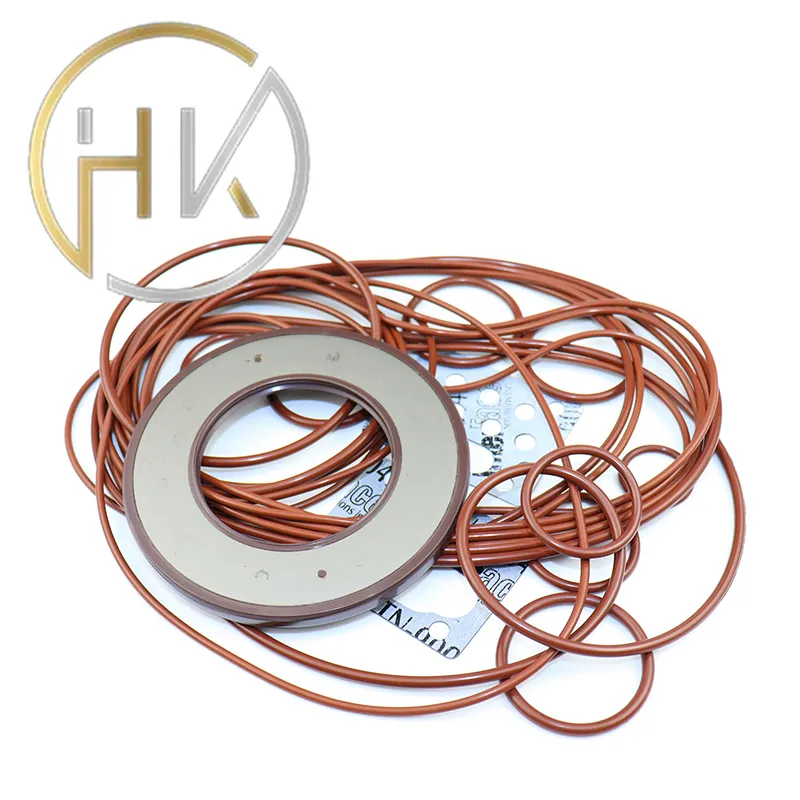Dec . 16, 2024 05:14 Back to list
Choosing the Right Wipers for Hydraulic Cylinders to Enhance Performance and Longevity
Understanding Hydraulic Cylinder Wipers Importance and Functionality
Hydraulic systems are critical components in various machinery and applications, ranging from heavy construction equipment to industrial robotics. Central to the efficient operation of hydraulic systems are hydraulic cylinders, which rely on seals and wipers to maintain performance and prevent contamination. Among these components, hydraulic cylinder wipers play a crucial role in ensuring the longevity and reliability of hydraulic cylinders.
What are Hydraulic Cylinder Wipers?
Hydraulic cylinder wipers, often referred to as dust seals or scrapers, are devices installed at the exterior of a hydraulic cylinder. Their primary function is to prevent contaminants such as dirt, dust, debris, and moisture from entering the hydraulic system. By performing this essential role, wipers protect the internal seals and components of the hydraulic cylinder, thereby maintaining operational integrity and preventing hydraulic fluid leaks.
How do Hydraulic Cylinder Wipers Work?
When a hydraulic cylinder operates, the piston moves back and forth within the cylinder barrel. This movement can draw in environmental contaminants, which can lead to increased wear and tear on the seals and internal components. Hydraulic cylinder wipers effectively scrape away these contaminants, ensuring that only clean surfaces come into contact with the cylinder. The wiper creates a barrier that minimizes the potential for contamination while facilitating the smooth operation of the cylinder.
Hydraulic cylinder wipers are designed to fit snugly around the rod as it exits the cylinder. The material and design of the wipers allow them to endure high-pressure conditions and a range of temperatures, all while maintaining their shape and function. Common materials used for hydraulic wipers include polyurethane, rubber, and various composite materials that offer chemical resistance and durability.
Importance of Quality Wipers
The quality of hydraulic cylinder wipers directly impacts the performance and lifespan of hydraulic cylinders. If wipers are defective or worn out, contaminants can enter the cylinder, leading to premature seal failure, increased downtime, and costly repairs. Therefore, selecting the right wipers for specific applications is critical. High-quality wipers should not only possess optimal sealing properties but also exhibit resistance to wear, abrasion, and environmental factors.
hydraulic cylinder wipers

Proper installation and regular maintenance of hydraulic cylinder wipers are equally important. Operators should routinely inspect wipers for signs of damage, wear, or hardening. Addressing these issues promptly can mitigate the risks posed by contamination and extend the life of the hydraulic system as a whole.
Types of Hydraulic Cylinder Wipers
There are several types of hydraulic cylinder wipers available on the market, each designed for specific applications and environments. Some of the most common types include
1. Single-Action Wipers Typically installed in applications where the rod extends and retracts without additional movement.
2. Double-Action Wipers Suitable for hydraulic cylinders that require sealing on both the extended and retracted positions.
3. Bellow Wipers Designed for applications with significant rod extension, these wipers offer enhanced dust protection.
4. V-Rings and Felt Wipers Often utilized in more specialized applications, these designs provide additional versatility and protection.
Conclusion
Hydraulic cylinder wipers are vital components that play a significant role in the performance and reliability of hydraulic systems. By keeping contaminants at bay, these wipers help maintain the integrity of hydraulic cylinders, which is crucial for the smooth operation of machinery. Investing in high-quality wipers, along with proper maintenance, can lead to reduced downtime, lower repair costs, and enhanced performance. Understanding the function and significance of hydraulic cylinder wipers empowers operators to make informed decisions, ensuring that their hydraulic systems remain efficient and dependable for years to come.
-
TCN Oil Seal Metal Ring Reinforcement for Heavy Machinery
NewsJul.25,2025
-
Rotary Lip Seal Spring-Loaded Design for High-Speed Applications
NewsJul.25,2025
-
Hydraulic Cylinder Seals Polyurethane Material for High-Impact Jobs
NewsJul.25,2025
-
High Pressure Oil Seal Polyurethane Coating Wear Resistance
NewsJul.25,2025
-
Dust Proof Seal Double Lip Design for Construction Equipment
NewsJul.25,2025
-
Hub Seal Polyurethane Wear Resistance in Agricultural Vehicles
NewsJul.25,2025
-
The Trans-formative Journey of Wheel Hub Oil Seals
NewsJun.06,2025
Products categories
















